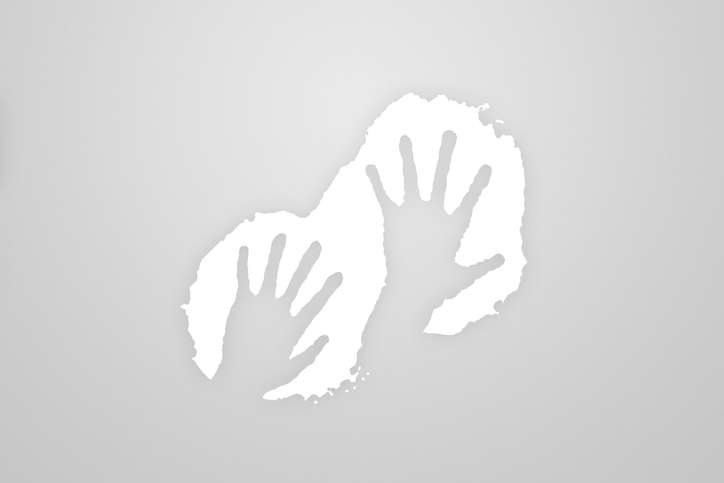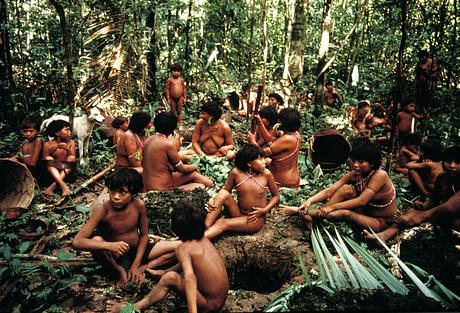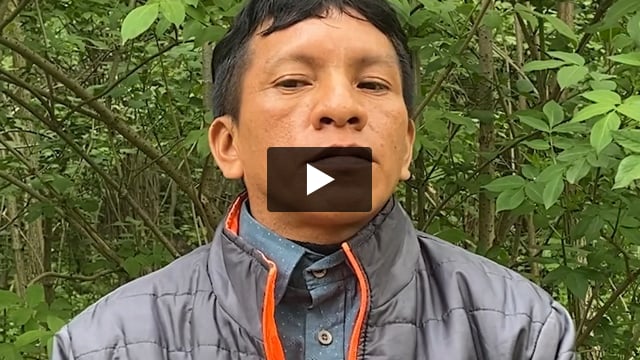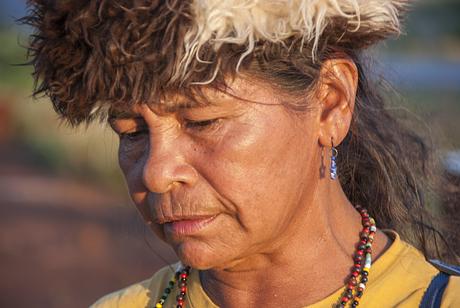Venezuela: Yanomami people engulfed in worst health crisis for decades
July 11, 2025
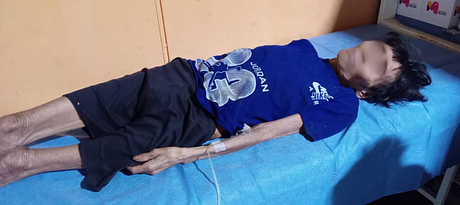 © Survival
© SurvivalThe Yanomami people in Venezuela are engulfed in a full-blown health crisis – one of the worst they have faced since coming into sustained contact with outsiders. The deaths, illness and suffering are largely due to the Venezuelan government’s failure to provide adequate health care and medicines and to stop wildcat gold miners operating illegally on their land.
The health care system in the Yanomami territory has collapsed - health teams visit only a few areas, and then very sporadically. Some communities in remote areas are not receiving any treatment. The government is fully aware of the crisis, but it has caused the loss of lives that could have been saved.
Last week a Yanomami health agent from Mavaca recorded a desperate video appealing for help. He said: “We have a very, very serious pandemic that is attacking children. Diarrhoea, parasites, high fever. Children are bleeding from their noses”.
He confirmed that Yanomami children have died: “There have been a few deaths of children here in Mavaca this month. Last month two children and one adult died".
“As a nurse, I am very concerned. There is no medicine in all the health posts… we have no doctor. We have not had doctors in our health post for years and years. For this reason, I call on the government of the state of Amazonas, and [the governor] Miguel Rodríguez, to support us, to provide air ambulances to transport medicines as soon as possible. Mayor Ramiro Moi, bring us medicines”.
Yanomami are dying of malaria and tuberculosis (both treatable diseases if diagnosed in time). In the last six months at least eight Yanomami people died of tuberculosis in hospital, in the state capital Puerto Ayacucho.
According to data compiled by Yanomami health agents in just one region, the Sierra Parima, more than 500 Yanomami in Venezuela died between 2022 – 2024 from malaria and other treatable diseases.
The Yanomami’s food security has worsened because many are debilitated by frequent bouts of malaria, tuberculosis, and pneumonia which drastically affects their ability to hunt and fish and to plant in and tend their gardens. Malnutrition is rife, especially among children and the elderly.
The Venezuelan army boasted on social media in June they had destroyed planes and gasoline supplies belonging to illegal miners at Haximu (where goldminers massacred 16 Yanomami in 1993) but organizations like SOS Orinoco and Survival have denounced the illegal mining in Haximu for years. In the region of Haximu alone, between 2020 and 2022 the number of miners expanded massively from just 40 to 80 mining camps, visible in satellite images. However, the Venezuelan military base nearby has turned a blind eye for years to the increasing influx of illegal miners from Brazil.
As far back as June 2021 Sanemá (a Yanomami subgroup) and Ye’kwana Indigenous people denounced the enslavement and killings of Indigenous people by Brazilian miners. Illegal miners and drug traffickers are also operating in the territories of other Indigenous peoples such as the Uwottüja. In September 2024 Joaquín Hernández, a Ye’kwana forest guardian, was attacked at night by three men who beat him to death. Following this brutal attack, Ye’kwana houses were burned down by miners. Virgilio Trujillo, coordinador of the Uwottüja Guardians, was murdered in 2022.
Nations High Commissioner for Human Rights submitted a report to the UN’s human The UN Office of the High Commissioner for Human Rights (OHCHR) submitted a report to the UN’s Human Rights Council meeting on 18 June expressing serious concerns about the deteriorating human rights situation in Venezuela. The OHCHR said it had “received information indicating that health challenges for Indigenous Peoples persisted, particularly with regard to exposure to malaria, tuberculosis, and HIV/AIDS. The lack of medicines and medical supplies, and the absence of routes and transport, further strained local capacities in responding effectively to outbreaks.”
OHCHR said it “received concerning reports on maternal morbidity and maternal death in Indigenous Ye’kwana and Sanemá territories. Allegedly, only three medical doctors were available per population of 7,448, and the 20 community healthcare centres in the territory lack medicines, basic materials and equipment, including diagnostics. Patients have reported difficult access to emergency services which may often be hundreds of kilometres away, with no available transportation.”
OHCHR noted that “the lack of demarcation of Indigenous Peoples’ territories contributed to exposure to illegal mining activities, as well as the presence of non-state armed groups or criminal organizations. Allegations of forced displacement of Indigenous communities continued, as well as clashes between Indigenous Peoples and persons settling with the mines, and environmental degradation and water contamination.”
Approximately 15,000 Yanomami live in 300 communities in Venezuela. Most are extremely isolated and have little contact with outsiders, and there are several uncontacted Yanomami communities. Centuries of isolation make them extremely vulnerable to diseases transmitted by outsiders as they have little or no resistance to common diseases such flu and measles, which are often fatal.


